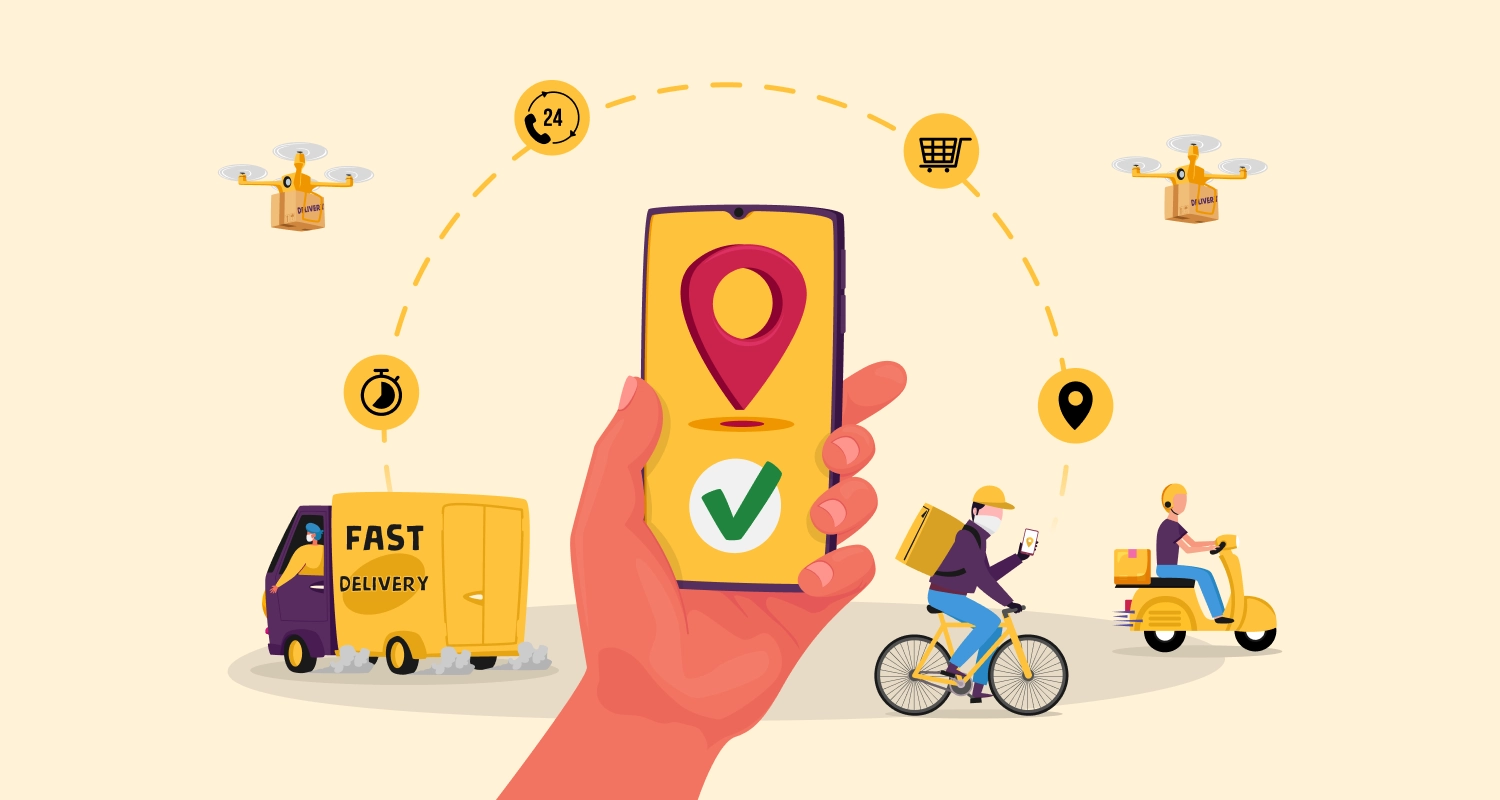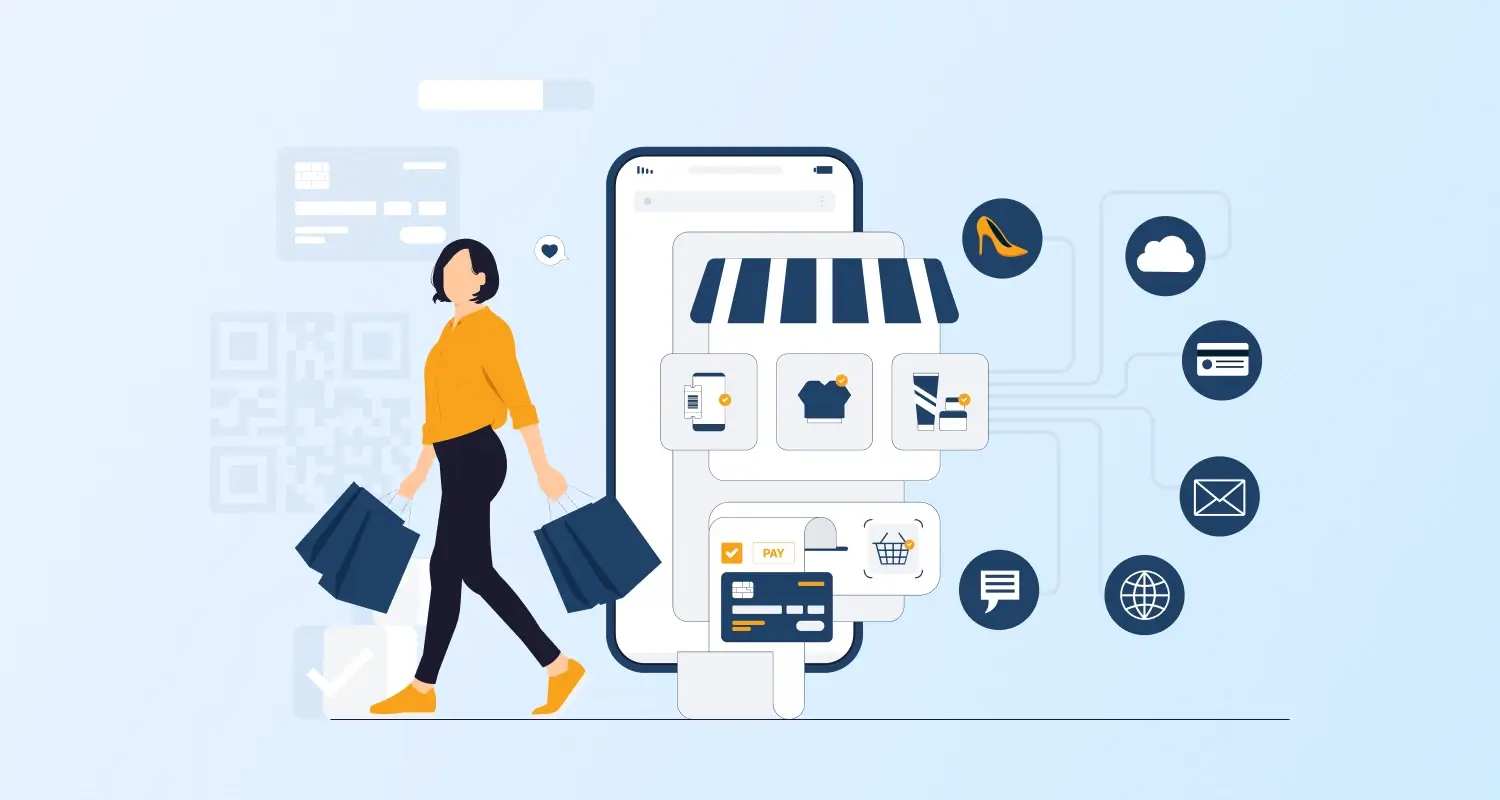Thanks to the web people are increasingly trying to be their own bosses of choice at every sphere. From the freedom and flexibility of making choices without restrictions of time and place to marketing niche products at their own pace through the internet, the world has changed a lot for both the buyers and the marketers. This is precisely the reason why eCommerce app development has flourished in popularity to such an unprecedented level.
If you are aspiring to build your own ecommerce store and reach out to a wider global audience with your niche products, there is no better time than to start now. Although, online stores are mushrooming at a rapid pace all over the globe, they are still way behind the conventional market in terms of sales and revenue. This is why, still a good online store having fulfilled all the requirements can enjoy a lot of success.
But the question is, what it takes to be successful with your online store? What are the key requirements to build an online store and market the store successfully? Well, these are things we are going to explain throughout the following post.
The Business Plan

Define The Type of Online Store You Want to Build
Let’s start with the basic and most elementary question. Remember, at this stage, your prime consideration is not about making a choice between Magento or Shopify for eCommerce development. Now, you just need to focus on the basics.
What type of online store do you want to build? To speak more emphatically, what products you want to market? Who are going to buy your products? Who will be your competitors that you have to fight with for market share? These are the questions you need to answer satisfactorily at the very beginning.
When you have clear answers to these questions, you further need to ask whether you are going to sell products locally or in the overseas market as well? You also need to figure out how the supply and delivery chain works to make the business possible?
Focus On Your Niche and Evaluate the Demand
Most guidebooks and articles on starting an online store are full of vague jargons like a user persona, customer lifecycle, etc. that most down to earth businesses have no idea about. Most sellers aspiring to build an online store just wants to sell their stuff. Let’s put the whole problem in proper perspective.
Unlike physical stores that are built upon demands in a particular locality, online stores already have huge competition just a simple click away. Without moving a leg a user can instantly go to another store with a simple click and start buying the products. So, your store needs to be more visible and easily discoverable on the web. This is something we will discuss on a later part.
But, at the very beginning you need to evaluate the competition for your products and the demands they generally enjoy. If you are selling winter apparel for men, you need to ask what distinction your products offer that others don’t. Does it offer the most affordable range for high-quality designer garments? Or, does it offer unmatched price for the same products you can buy from any other store? Well, based on your niche what competitive value you can offer to your customer that is something you need to decide.
Doing Market Research
In modern marketing, especially on the digital space “knowing more” translates into “doing more” or “getting more”. Deeper you know about your customers, better sales output you can get from your marketing efforts. This is why, after having a clear idea about your online store and the marketability of your products you need to do market research to know your target audience. Market research will also reveal about your competition and how they have shaped the UX for eCommerce to satisfy their intended audience.
Let us have a look at some of the key questions your market research should focus upon.
- Do some research to find out what your competition is doing and learn from their practices to a certain extent.
- Find out where your ideal customers are handling out, what products they are buying and how they evaluate products before purchasing.
- Find out how your competition is promoting the products and trying to influence sales.
- At last, find out some common and Frequently Asked Questions (FAQ) from the target audience across various online stores.
eCommerce Website Development Steps
Now that you have a clear idea about the online store you want to build along with your target audience and the competition, it is time to focus on putting the technical elements together for shaping the store. Let’s mention here the key steps for building an online store.
- First of all, choose a name for the store related domain name. Keep it short, sweet and instantly meaningful for your niche.
- Now take a web hosting package from any reputed provider. You can go for a economy package in the beginning and later on can scale up to bigger packages as the business and traffic grow.
- Hire an eCommerce development company with credible expertise, portfolio and experience to build a similar successful store.
- This is also the time to choose the most suitable ecommerce platform for the type of online store you want to build. Obviously, a Magento Development Company will always prescribe Magento for your platform and hence you need to consult with a company having expertise on multiple leading platforms.
- Now launch the blank online store sans products.
- Now It is time to customize the store in look and feel through detailed and meticulous design. You need to hire an expert ecommerce store designer now.
- Now fix the core settings of your ecommerce store and make it more user-friendly and optimized for the buyers. Your developers will guide you in doing this better.
- Now start adding the products you want to sell in your store. At first, add only the elementary products that represent your brands and start with the main options for each category.
Let People Know About Your Business – Marketing
Now, that you have almost finished building your store with all the necessary attributes, it is time to reach out and market your products to the wider audience. Obviously, marketing your online store and the products should involve multiple channels including the web and search engine, social media platforms, influencers and content marketing. Let’s shed light on them briefly and one by one.
Search Engine Optimisation (SEO)
The most effective way to reach out to your target audience is to boost visibility and discoverability of your site in the search engine results. We call this Search Engine Optimisation (SEO). The kind of searches that are relevant for your products and the store should be addressed by optimising your in-store contents with these search terms or keywords.
To do this, you can always utilise keyword search tools and find out the search terms that are being used to find products similar to your store offerings. Now, list these keywords as per priority and use the most search-friendly keywords in the page titles, product descriptions and headings. Use appropriate keywords in meta descriptions of products, image descriptions and URLs of respective products. All these key elements help you having a near-perfect control on your search engine visibility.
Reaching Out to the Wider Audience
For appropriate marketing of your eCommerce store and the products, Search Engine Optimisation (SEO) is just the beginning. You need to grab other marketing channels as well for optimum result. Let’s have a look at the three channels that are going to play a vital role in the marketing mix for your ecommerce store.
Content Marketing: Ultimately, It is the web contents that engage people and inform them. While accessing the content they can take an interest in your product and can visit the store. This is the core logic of content marketing for an ecommerce store. Contents published on relevant topics related to your niches in third-party stores can help you generate quality backlinks that can generate steady traffic for your ecommerce site.
Social Media Marketing: Secondly, social media platforms allow you to market your products directly through sponsored paid campaign posts and regular posts through a dedicated social media brand page. But you need to focus on the most effective channels that can drive traffic for your store. For instance, for a female audience, Pinterest and Instagram are two must-go channels.
Influencer Marketing: Lastly, It is the influencers or the people with large following and outreach who can spread a positive vibe about a brand and help the ecommerce marketing at a quicker pace. First of all, you need to spot these influencers of your niche and secondly you need to approach them for driving your marketing message to their audience.
Conclusion
Building an ecommerce store doesn’t require too many efforts. But building it right and positioning it perfectly for driving results requires meticulous focus and effort. You need to take each and every step seriously and plan the steps well in advance. While working on a low budget you need to work extra hard to shape things perfectly for an intended result.










